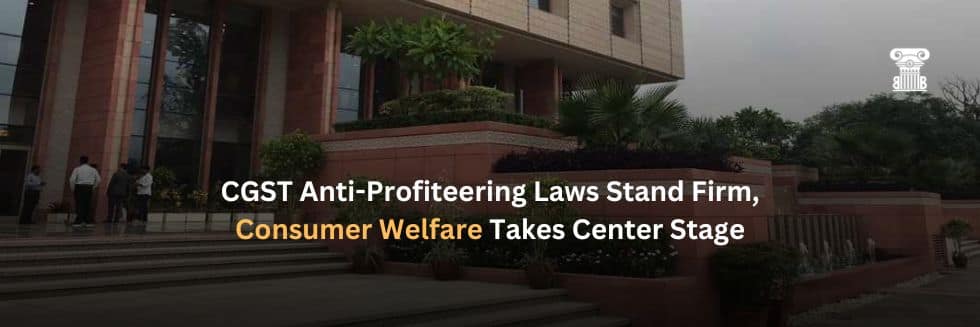In a significant ruling, the Delhi High Court has upheld the constitutional validity of anti-profiteering measures and the establishment of the National Anti-Profiteering Authority (NAA) under the Central Goods and Services Tax (CGST) Act, 2017. The court comprising Acting Chief Justice Manmohan and Justice Dinesh Kumar Sharma observed that these provisions are in the nature of beneficial legislation playing a pivotal role in promoting consumer welfare. The decision comes in response to a batch of over 100 pleas filed by various companies challenging the constitutionality of the anti-profiteering provisions and the actions of the NAA. The court while affirming the validity of Section 171 of the CGST Act and related rules emphasized the commitment to the fundamental objective of the GST regime i.e. to ensure the passage of benefits to consumers through reduced prices.
CASE DETAILS:
Reckitt Benckiser India Private Limited v. Union of India Through Its Secretary & Ors.
W.P.(C) 7743/2019
Delhi High Court
Coram: Chief Justice Manmohan and Justice Dinesh Kumar Sharma
BRIEF FACTS:
- The court was addressing over 100 petitions filed by different companies instructing them to transfer the corresponding advantages of reduced tax rates or Input Tax Credits to their consumers or recipients along with interest.
- These petitions contested the constitutionality of the anti-profiteering provisions, questioned the legality of notices proposing penalties issued by the National Anti-Profiteering Authority (NAA) and challenged the final orders issued by the Authority.
OBSERVATIONS:
The court determined that the responsibility to implement a “commensurate” reduction in prices aligns with the fundamental goal of the Goods and Services Tax (GST) regime ensuring that suppliers pass on the benefits of reduced tax rates and Input Tax Credit to consumers. It clarified that Section 171 of the Act should not be construed as a price control measure but should be viewed in direct connection with the GST regime’s objectives.
In essence, the court stated that Section 171 of the Act mandates the reduction of prices equivalent to the tax savings incorporating the principle of unjust enrichment. It emphasized that this section is a consumer welfare regulatory measure designed to alleviate the cascading effect of indirect taxes and lessen the tax burden on the final consumer.
The court highlighted the existence of a robust mechanism in compliance with constitutional requirements to address grievances related to breaches of Section 171(1) of the Act. It dismissed claims of insufficient judicial oversight over the decisions of the National Anti-Profiteering Authority (NAA). Additionally, the court clarified that the NAA primarily serves as a fact-finding body responsible for investigating whether suppliers have fulfilled the mandate of Section 171 of the Act ensuring the passing on of benefits through reduced prices. It acknowledged that the NAA’s functions require expertise in the relevant domain.
ORDER:
The Delhi High Court validated the anti-profiteering measures under the CGST Act affirming the constitutional validity of Section 171 and the associated rules. The court deemed these provisions beneficial serving the purpose of promoting consumer welfare. The matters are scheduled for further directions on merits on February 08, 2024.






